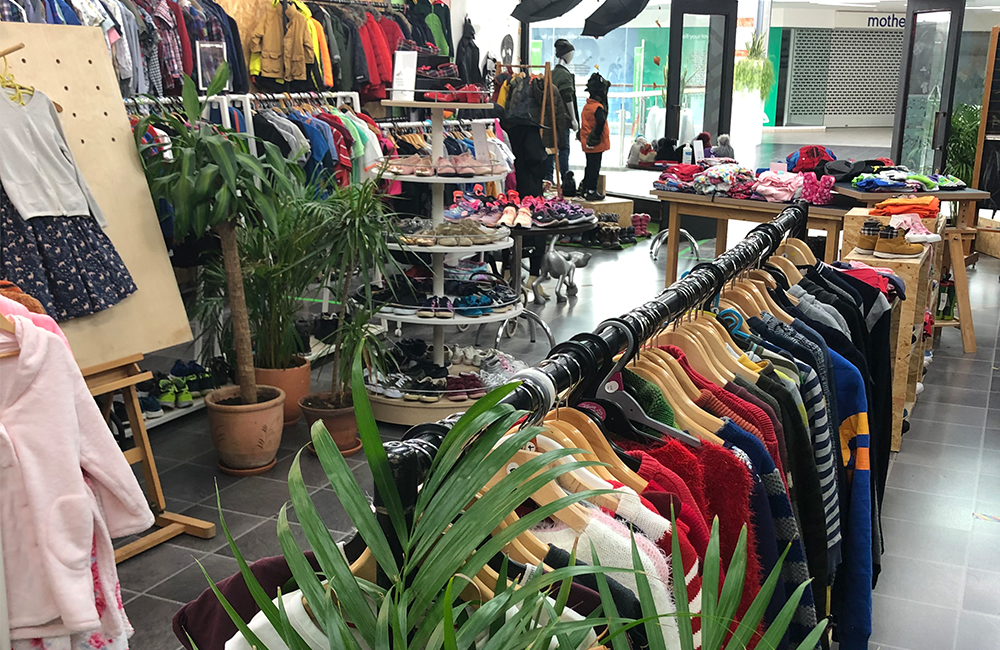26 January 2021

Wow. 2020/21 has been a year of immense upheaval for any business in the fashion and clothing industry. The Covid-19 pandemic has shone such a harsh light on so many aspects of how we dress and shop for clothes, for both producers and consumers. For a world in lockdown, clothing needs have changed dramatically – less office dress, more comfort and practicality. Sadly party gear is not on the agenda, but ‘top dressing’ for zoom is a new thing, and, especially in Scotland, thermal dressing for outdoor coffees and walk and talks have become vital… And behind these changing choices is the harsh reality of an airborne virus showing up desperate working conditions in clothing factories. With a c.25% drop in sales of non-food items across the year, it has been a time of extraordinary shift in both habits and attitudes. Conditions could not have been tougher, but we wonder if seeds are actually being sown for more circular economies and earth-gentle businesses to take hold.
For us at ApparelXchange, where our business is second-hand/preloved children’s clothing, the year has certainly presented challenges, but it’s also made us more determined than ever to develop innovative aspects of our circular economy model. Of course, lockdown and social distancing restrictions have hit footfall at our St Enoch Centre store, but we have seen increased engagement with our ‘story’, our ethics and our mission. We have turned necessity into an opportunity by really thinking hard about how to make our online presence work both in practical terms – by addressing the challenges of shopping with children during a pandemic – and in more broad terms of consciousness raising and community building.
Unsurprisingly, we’ve seen folk shopping within ever tighter budgets, as the twin forces of austerity and the pandemic’s economic effects get stronger. But we’ve also seen them talking more about clothes. High profile cases of industry scandals – such as the Boo Hoo ‘sweatshops’ in Leicester that disastrously made COVID outbreaks inevitable – shocked consumers into conversations about #WhoMadeMyClothes, excess production, terrible working conditions, and unsustainable practices in fashion. We’ve found shoppers being really thoughtful about where there clothes come from, what resources they use up, how preloved clothing can be an ethical and ecological choice.
Simultaneously, the move to working and schooling from home has seen families having to re-think their wardrobes in terms of both size and content. Talk of moving to 4-day weeks and flexible working (good changes in our view) will only encourage this. Spending so much time at home, however, it’s hard to ignore the complexities of managing the contradictions of shoppers having been encouraged to buy more, more, more whilst living in small spaces: people are reaching peak capacity and are re-thinking whether they need more stuff at all…
All of this has led us to think even more carefully and powerfully about our social enterprise mission and our commitment to reinvesting in our community. Despite ultimately being a business characterised by shopping, we actually want to encourage this move to buying less, which means continuing to expand our role away from just being sellers. This means developing sophisticated marketing strategies that are also about helping families, educating shoppers, and empowering people to feel good about clothes that they have selected thoughtfully and cared for actively. It means building community rather than raising sales; it means creating long-term habits rather than quick turnarounds, and, especially while the present continues to feel uncertain, it means keeping focus on our long-term goal of being part of a future-orientated, enterprising and earth conscious Glasgow.
Facebook: @apparelxchangeCIC
Instagram: @apparelexchange
Written by Rhian Williams, ApparelXchange
